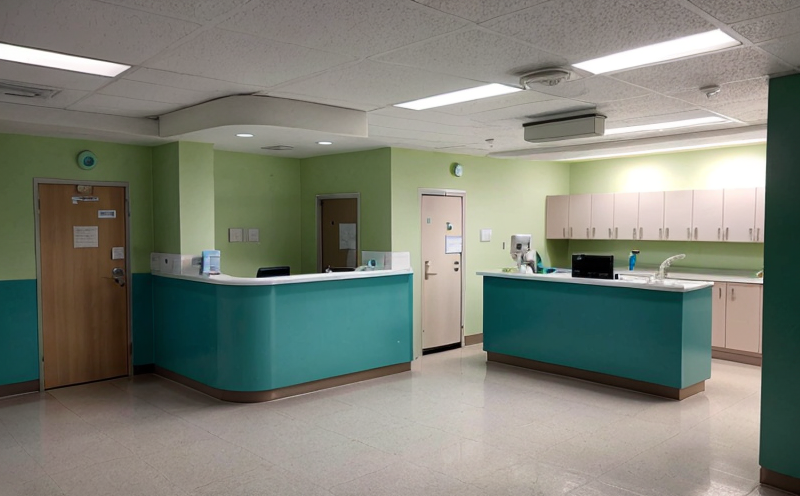ASTM E2998 Validation of Microbial Identification in Healthcare Labs
The ASTM E2998 standard is a critical tool for healthcare laboratories aiming to ensure accurate and reliable identification of microorganisms. This service focuses on the validation process required by this standard, ensuring that microbiologists can correctly identify pathogens which are crucial for effective treatment decisions.
In many hospitals and healthcare facilities, identifying microbial agents quickly and accurately is paramount. Misidentification could lead to improper treatment regimens, increasing patient risk and potentially spreading infections within a facility. The ASTM E2998 validation process helps prevent such errors by rigorously testing the capabilities of different identification systems under controlled conditions.
The first step in this process involves selecting appropriate test organisms that cover the range of pathogens likely to be encountered in healthcare settings. These include Gram-positive and Gram-negative bacteria, fungi, and other medically relevant microorganisms. Each organism is prepared according to specific protocols outlined in the standard, ensuring consistent preparation across all tests.
Once prepared, these specimens are introduced into various microbial identification systems for analysis. The systems being validated could range from automated biochemical analyzers to advanced mass spectrometry tools. After processing, each system generates a report identifying the microorganism based on its characteristics. These reports are then compared against reference standards and clinical data to evaluate accuracy.
This comparison is not merely qualitative but also quantitative, focusing on metrics such as sensitivity, specificity, and overall agreement rates. Sensitivity measures how well a test detects true positives; specificity looks at false positive results. Agreement rate reflects the degree of concordance between the system's identification and known references. These measurements are essential for determining if the system meets the stringent requirements set forth by ASTM E2998.
Another key aspect of this validation process is ensuring reproducibility and reliability across different laboratories and over time. Reproducibility ensures that similar results can be achieved in various settings, while long-term stability checks the longevity of these systems' performance. Both aspects are crucial for maintaining consistent quality control within healthcare environments.
The ASTM E2998 validation process also emphasizes traceability to internationally recognized standards like ISO and WHO guidelines. This alignment guarantees that the validated methods align with global best practices, enhancing confidence in diagnostic outcomes across borders. Furthermore, it supports interlaboratory comparisons, fostering a collaborative environment where knowledge sharing can improve overall patient care.
By adhering strictly to ASTM E2998 standards during this validation process, healthcare laboratories not only enhance their operational efficiency but also contribute significantly towards improving public health by ensuring accurate and timely diagnosis of infectious diseases. This meticulous approach underscores the importance placed on precision medicine and personalized treatment strategies in modern healthcare practices.
Applied Standards
The ASTM E2998 standard is particularly applicable to laboratories engaged in microbiological testing, especially those serving hospital and healthcare sectors. It provides clear guidelines for validating the accuracy of microbial identification systems used in these environments. Compliance with this standard ensures that laboratory practices meet stringent quality assurance criteria.
- ISO 15189: This international standard emphasizes proficiency in medical laboratories, including microbiology sections. By aligning with ASTM E2998, healthcare labs can better meet ISO 15189 requirements for accuracy and reliability.
- EN ISO/IEC 17025: This European standard sets out the general requirements for the competence of testing and calibration laboratories. Laboratories adhering to ASTM E2998 align their practices with these broader standards, enhancing credibility and trustworthiness.
The integration of ASTM E2998 into laboratory protocols supports compliance with these internationally recognized norms, ensuring that healthcare institutions maintain high standards of microbiological testing.
Benefits
- Enhanced Accuracy: By validating microbial identification systems according to ASTM E2998, laboratories can significantly improve the accuracy and reliability of their diagnostic processes. This leads to more precise diagnoses and better treatment outcomes.
- Patient Safety: Accurate identification prevents misdiagnosis, which could otherwise lead to ineffective treatments or unnecessary risks for patients. Ensuring correct identification minimizes these potential dangers.
- Interlaboratory Comparability: Standardized validation processes allow different laboratories to compare results reliably. This comparability is vital for collaborative research and patient care across various healthcare settings.
- Regulatory Compliance: Meeting ASTM E2998 requirements helps labs comply with regulatory bodies, ensuring they meet necessary quality assurance criteria set forth by governing agencies.
These benefits collectively contribute to higher standards of patient care and more efficient laboratory operations within healthcare facilities.
Why Choose This Test
- Highly Regarded Standard: ASTM E2998 is widely recognized in the microbiology community for its rigorous approach to validating microbial identification systems. Its widespread adoption underscores its credibility and value.
- Data Integrity: The standardized procedures outlined in ASTM E2998 ensure that all validation data are collected, analyzed, and reported consistently across different laboratories. This consistency builds trust among stakeholders involved in healthcare diagnostics.
- Patient-Centric Approach: By prioritizing accurate identification of pathogens, this test directly impacts patient safety and treatment effectiveness. It aligns with broader goals of improving public health through precise medical interventions.
- Educational Value: Participation in ASTM E2998 validation provides valuable educational opportunities for laboratory personnel. It enhances their skills and knowledge about modern microbiological techniques and best practices.
These factors make ASTM E2998 an essential choice for healthcare laboratories aiming to enhance their diagnostic capabilities and contribute meaningfully to patient care.





